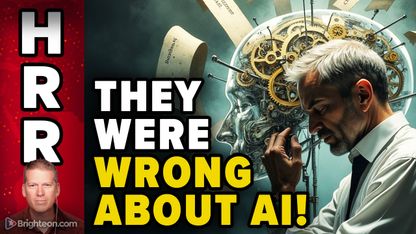
The 72-year-old was found dead in the bedroom of his home on April 13. Known as the late-night host and producer of the Coast to Coast AM radio show, he covered topics like crop circles, alien abduction, conspiracy theories, and UFOs for an audience that sometimes numbered 15 million people a night. At its peak, his show was heard on 500 radio stations around the country, and he also appeared on Sirius XM satellite radio. In 2008, he was inducted into the National Radio Hall of Fame.
The coroner’s office reports that there were four prescription medications in Bell’s system at the time of his death: the muscle relaxant carisoprodol, diazepam (which is often sold under the Valium brand name), and the opioids hydrocodone and oxycodone. The Nye County Sheriff’s Office said the drugs had been lawfully prescribed to him, and his death was ruled an accidental overdose. There were no signs of foul play. He was also reportedly suffering from chronic constructive pulmonary disorder and high blood pressure.
Prescription overdoses surprisingly common
Unfortunately, this scenario is all too familiar in the U.S. these days. The CDC reports that hydrocodone, oxycodone, and methadone are the three most common prescription drugs involved in overdose deaths. One out of every four people prescribed opioids is believed to develop an addiction, and emergency rooms across the country are treating a thousand people per day on average who have misused an opioid drug.
It’s a sad fact that prescription opioids are behind the soaring rates of drug addiction and death in the country. Therefore, it’s not surprising that several states are bringing the drug makers behind these dangerous pills to court over the role they’ve played in the addiction outbreak. Some Big Pharma companies have been accused of misleading patients and promoting fraudulent information about the drugs in a bid to get more people hooked.
Perhaps one of the most heartbreaking elements to Bell’s story and the thousands of others like him who die this way each year is the fact that their deaths were preventable. While we don’t know why Bell was taking painkillers, we do know that opioids are often prescribed in cases where they’re not really necessary for myriad reasons, not the least of which is the kickbacks Big Pharma companies give to doctors for prescribing them.
One out of 12 American doctors have been given a payment by an opioid pharmaceutical company, studies show. In the course of just 16 months, more than 68,000 doctors racked up more than $46 million in non-research payments that were related to opioids. Studies have shown that such payments, even when small, do influence doctors’ prescribing habits.
In fact, a report from the University of Southern California found that total opioid prescribing in America went up 471 percent in the past decade; 83 percent of these prescriptions were office-based.
With so much money at stake, this problem doesn’t look like it’s going to go away any time soon. This means that we will probably hear many more stories of people passing away tragically like Bell did from prescription drug overdoses.
Bell’s obituary said that as he “begins his journey on the ‘Other Side,’ we take solace in the hope that he is now finding out all of the answers to the mysteries he pursued for so many nights with all of us.”
.
Sources for this article include:
Please contact us for more information.























